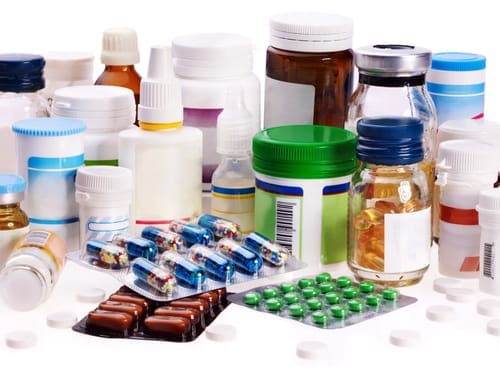November 12, 2018
It is common knowledge these days that drinking and driving do not mix, despite over one million Americans still being arrested for driving while impaired in 2016.
It’s known that driving under the influence of alcohol or drugs is a life-risking decision. But did you know this includes legal, prescription and over-the-counter drugs as well?
When most think of impaired driving, they usually assume alcohol and illegal drugs. This naiveté puts them in a situation that endangers the lives of themselves, any passengers in their vehicle and other drivers with whom they share the road. Just because it’s legal does not mean it’s entirely safe–every drug has side effects. Many medications cause drowsiness, affect concentration, slow down reaction time and impair judgment just like alcohol and illegal drugs. It is vital to know the side effects of your medication and listen to your doctor’s recommendations, especially when it clearly states “do not drive or operate machinery.”
How to spot impairing prescription drugs
Your doctor and pharmacist will inform you if a prescription drug impairs driving, but it’s up to you to see which over the counter drugs impair driving. Here’s a short list of the common culprits, according to the U.S. Food and Drug Administration:
- Antihistamines, used to treat cold symptoms, many of these can cause drowsiness, make you feel unfocused, or impair your reaction time.
- Antidiarrheals, pretty self-explanatory, can cause drowsiness.
- Anti-emetics, used for treating nausea and dizziness with motion sickness can also cause drowsiness.
It’s always the better option to simply read the side effects of the drug to see what sides effects will impair driving. Even if you do not feel the effects, they can take some time to fester and may potentially impair you midway through the commute. Reconsider powering through an illness and going to work when medication is required, especially if you work with machinery. You may think you can still handle your desk job, but driving is almost necessary to get there. When in doubt, stay home.
You cannot get away with it. There are tell-tale signs of both legal and illegal drugs your body shows that are out of your control. Officers that are certified (aka Drug Recognition Experts–DRE) are trained to recognize these signs and will absolutely catch them during a traffic stop and field sobriety test.
DUI penalties in Nebraska
While due convictions via drugged driving are case-by-case, the penalties generally align with typically with alcohol-related DUI convictions. There are not any set level for DUI and aggravated DUI when it comes to drugs in the system, whereas alcohol-related DUIs carry a heavier sentence if the drivers BAC is above 0.15.
DUI in general convictions vary case-by-case and depend heavily on circumstance and criminal history, but carry similar consequences for medication-related DUI and alcohol-related.
It’s important to note that convictions and court processes may take longer due to different methods of establishing a driver is impaired. Alcohol-related DUI arrests run more smoothly; a simple field sobriety test and a Blood Alcohol Content test are easily administered with immediate results.
Legal and illegal drug-related DUI arrests are different. An officer who stops you and is not a certified DRE must contact the nearest, certified DRE to conduct a field sobriety test. This will take additional time simply for travel purposes in the situation where the initial officer is not certified in that field. They require blood tests and urine analysis tests that are then sent to the state crime lab for further testing. These tests can take at least one month to conduct due to the sheer number of tests currently waiting to be evaluated and the processes needed to discover drugs in a driver’s system.
Any blog published by Friedman Law Offices is not meant to be a substitute or replacement for personalized legal advice. Please consult with a lawyer before making any decision that may impact your legal rights.

